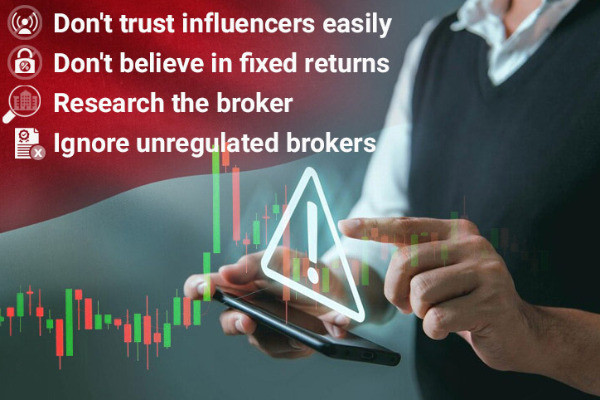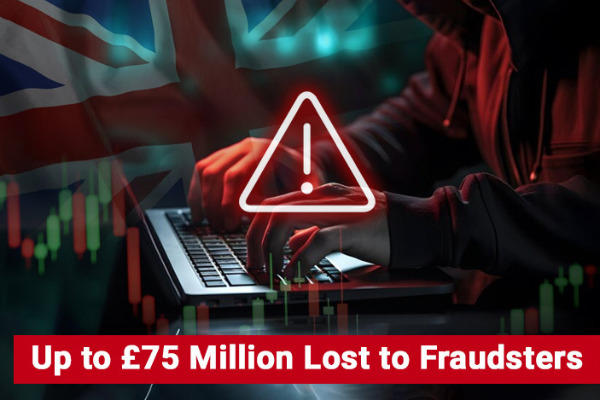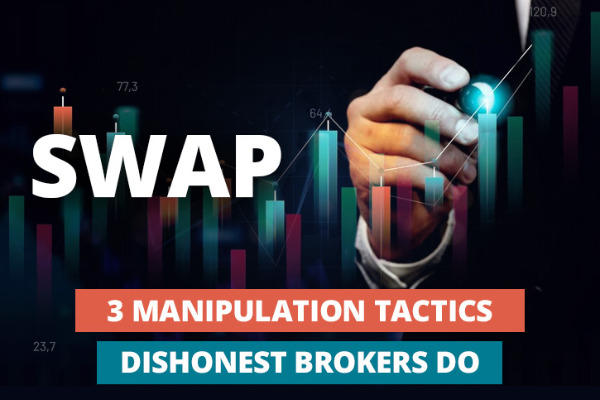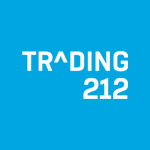If you already trade in a broker but it starts to show suspicious changes that result in your losses, you may need to prepare to leave the broker. Here are the red flags to watch for.
"There is nothing permanent except change" is a classic proverb from Heraclitus which also applies to any earthling element. For your best trading experience, you may have run research on the best brokerage service or company that fits your ultimate goals. Further, after some time, you also may have fetched the stream of profit that excites you.
However, one cause leads to another, resulting in an accumulated huge change. New regulations arise, the environment changes, and other circumstances may adversely affect your trading platform. To avoid further loss, you should be aware of such changes. Therefore, this article will provide you with red flags that may indicate alerting situation of your brokerage account.

1. Difficulties in Deposits and Withdrawals
First of all, you may encounter some issues regarding access to your money. Easy access to your funds may come as your first consideration which entails instant, easy, and smooth transactions. However, you may find a gap between your expectation and reality.
- You wait longer for your deposit to proceed. You are maybe in the mid of interesting trading, so you plan to deposit to enter the game swiftly. But unlike previous deposits, you end with disappointment because the process ised for one reason or another. This will put more stress as you are losing opportunities.
- Your withdrawal is not as swift as advertised. Say a broker claims that they can process instant withdrawals in a matter of hours or even minutes. If in reality the process takes more than 1 business day and it happens quite a lot, it can be considered as a red flag that proves the broker is putting false claims.
2. Sudden or Unreasonable Changes in Key Features
Some event or circumstance is probably going to be impacted and might not stay the same. When anything is described as "subject to change," there is a potential that you may incur more losses in terms of money, time, and effort.
- Your brokerage company may execute trades with a different model than what they are supposed to. It adversely impacts how people trade. For example, your broker unknowingly applies the FIFO (First In, First Out) policy that cancels out any hedging strategies with the same instrument trading.
- The platform changes. You are used to using MT4. All of sudden, you have no choice but to move to MT5. Some traders may feel happy considering this may be an upgrade, but the transition should be optional or at least gradual for the traders' comfort.
- The stop-out level is increased. A higher stop-out level will cause you greater loss as it will let your losing position run its course until you have nothing left in the account.
- Changes in spread and/or commission. Anything related to trading costs should be a sensitive matter as it influences one's profitability in the long run. If your broker promises 0.6 pips but charges 3x even during normal market situations, it is the prime example of false marketing and you should consider opening an account with a more honest broker.
- Leverages are lowered for no reason. This limitation may result in higher margin requirements and thus inflict on any trader who are used to trade with high leverage. This can be normal ahead of, during, and immediately after big events and is usually announced days before the implementation. But if your broker changes the leverage for no particular reason and does so suddenly, it's indeed a red flag.
- Your pair leaves you. Imagine you have been favoring EUR/CHF in your trades for some time. But suddenly, the broker eliminates the pair and leaves you without any alternatives. If there is no fundamental background in the market that drives your broker to do so, it's better to leave the broker as it indicates their inconsistency and lack of commitment in their service.
- Obvious stop hunts. This often happens in market maker brokers who trade against the traders. In this case, you will find your stop losses getting executed just before the price moves in your favor. If this happens all the time even though you have avoided obvious areas when determining stop losses, then it's obviously a red flag.
3. Poor Treatment to Clients
When you register with a broker and deposit some funds, it's normal to expect a good support system that can help and assist you during your trading experience. However, issues may stand in your way and these are the signs that your broker may be up to something unfavorable to you:
- When trying to access the broker website, you may find an error. It's true that any website needs maintenance for some updates or other necessary adjustments. But if it happens so often and for long periods, then the broker's website may pose issues such as low maintenance or even hacking. These happen beyond predictions and this unavailability may cause traders pain when logging in, managing accounts, making deposits, or withdrawing money. Things are getting worse when so limited customer support is available. Being in this unfavorable moment for several days may encourage traders to find a new home for trading.
- Your broker fails to provide adequate facilities including proper connection and speedy execution. These infrastructures should be well maintained despite any external causes. Poor facilities may indicate ignorance from the broker side, which will eventually lead to unnecessary losses from the traders' side.
- You may wonder where have all the customer services gone. Things may not be smooth at all times. In such situations, traders should be able to turn to customer service. Unresponsive customer services or limited information will be translated as incompetence on the broker's part. Should this situation be ongoing, it's better to look for other brokers with better customer service.
- You may receive a phone call asking for more deposits or more frequent trade. This is possible as your contact information is accessible to the company. Thus, your data may facilitate the broker to contact you by email or cell phone, urging you to be more speculative and increasing your risks in the market.
- Your broker advises you to increase your positions. If anything, you should be advised to add your balances first before increasing your trading volume as it directly pumps up your exposure in the market.
- Removal of your favorite payment method. The payment method will determine how much fees and commission you will have to prepare, when you will receive your funds, and how secure the process is. You may rely on one payment method that you consider low-priced and fast. However, due to a certain reason, a broker decided to remove your reliable payment method and you are then in a queue of a wire transfer which is expensive. It would be wise to maintain your preference by switching to another broker.
4. Warnings from Other Parties
Any strange changes and unreasonable acts from a broker usually don't go unnoticed especially if the broker is followed by many traders. Thus, it's a good thing to open your eyes and ears to online trading sites and communities when suspicious things start to appear from your broker.
- Bad reviews on trading websites. You may come across legitimate reviewers who do a number on your broker. It's forever worth paying attention to this stream of expressions. You should be all ears to the complaints and how the broker responds to them along with the accountable evidence. Accordingly, you can make an informed decision regarding your faith in the broker.
- Issued warnings by regulatory agencies. Regulators like CySEC, NFA, or FCA commonly issue warnings about the absence of a proper license at certain companies that run their business in their jurisdiction. Be critical when dealing with any broker that claims themselves legal. Pack your money and leave while you still have time.
You may be successfully avoiding risks thanks to your comprehensive observation of the red-flagged companies. In doing so, you also reduce your exposure by attempting to stay away from potentially damaging situations. However, on top of everything, the best thing you can do when one or several issues mentioned above surface is to close your account immediately. There are many brokers out there who do well for so many years because of their commitment to provide the best for their clients.

 Dedicated FREE FOREX VPS
Dedicated FREE FOREX VPS Free FOREX Virtual Private Server
Free FOREX Virtual Private Server MT4 Demo Contest, Get $500
MT4 Demo Contest, Get $500 Sign Up for an Account, Claim 60% Deposit Bonus
Sign Up for an Account, Claim 60% Deposit Bonus Free MT4/MT5 VPS 2024
Free MT4/MT5 VPS 2024 Send E-mail and Get Free Merchandise
Send E-mail and Get Free Merchandise $1K Refer a Friend Bonus for Pepperstone Pro clients
$1K Refer a Friend Bonus for Pepperstone Pro clients Maximize Your Earnings with 100% Deposit bonus
Maximize Your Earnings with 100% Deposit bonus Trade to Win, $5,000 Monthly Demo Contest
Trade to Win, $5,000 Monthly Demo Contest Claim 30% + 15% Deposit Bonus from LiteFinance
Claim 30% + 15% Deposit Bonus from LiteFinance































1 Comment
Samuel Wong
Nov 16 2022
As for me, I don't really care about user reviews of brokers. I mean I looked for reviews and most of the reviews just blame the brokers for slippage, or not being able to open multiple positions, or any other problem that could really happen on the market. It's not the broker's fault. And if you look closely at the review, all the brokers have a medium to low star rating. Also I often see some user that blame the demo account for always winning, while in the real market they always lose. If you have found all the reviews about this broker, I don't think you should conclude that the broker can scam you. But if you find that a lot of reviews said too difficult to withdraw, or the website's server always down, or any review that similar to this article, it means you should not use these brokers, or should stop and leave if you trade in there